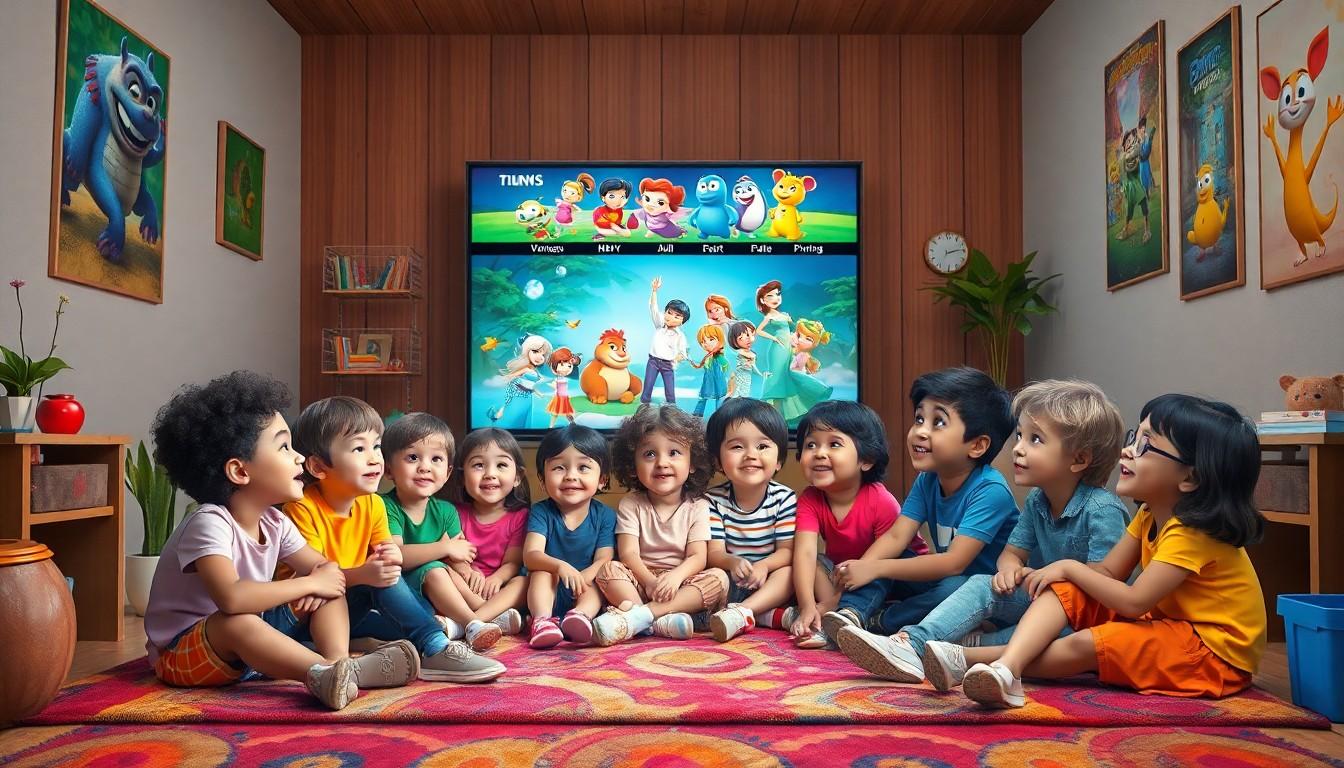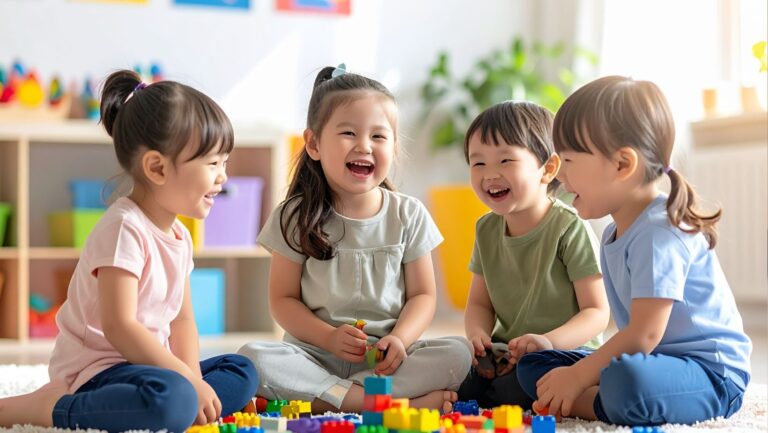Table of Contents
ToggleIn a world where kids juggle school, friendships, and the occasional existential crisis, mental health movies can be their secret weapon. These films not only entertain but also spark conversations about feelings, resilience, and the importance of taking care of one’s mind. Imagine a movie night where laughter meets life lessons—now that’s a blockbuster idea!
Importance Of Mental Health Movies For Kids
Mental health movies for kids offer crucial insights into emotional well-being. These films can create safe spaces for discussion, helping children understand their feelings and the feelings of others.
Understanding Mental Health
Understanding mental health begins with recognizing emotions. Movies often illustrate various challenges, such as anxiety and depression, in relatable contexts. Characters’ journeys can provide kids with examples of coping mechanisms and resilience. Discussing these themes post-viewing can facilitate deeper comprehension and empathy. Kids can ask questions, express feelings, and relate to characters, creating valuable connections between fiction and real-life experiences.
Impact On Child Development
Films centered on mental health significantly impact child development. Exposure to diverse experiences fosters empathy, encouraging children to consider perspectives beyond their own. Such narratives teach problem-solving and decision-making skills through character challenges. Viewing relatable situations helps kids validate their feelings. Positive representation in these movies can enhance self-esteem and promote conversations about mental health, ultimately shaping emotionally intelligent individuals for the future.
Top Mental Health Movies For Kids
Mental health movies for kids provide important lessons through engaging storytelling. The following selections highlight emotional well-being and resilience.
Animated Classics
Animated classics deliver meaningful messages in entertaining formats. Inside Out illustrates how emotions influence behavior, teaching kids about feelings like joy and sadness. Frozen emphasizes self-acceptance and healthy relationships, showing how love can combat anxiety and fear. Wreck-It Ralph addresses issues of identity and self-worth, demonstrating the importance of being true to oneself. Toy Story reinforces friendship and the significance of supporting one another through challenges. These films create relatable situations for young viewers, helping them understand and recognize their emotions.
Live-Action Films
Live-action films explore mental health themes in relatable narratives. A Monster Calls tackles grief and loss, presenting a child’s journey through difficult emotions with the help of imagination. Wonder promotes kindness and empathy through the story of a boy with facial differences, highlighting acceptance and resilience. The Wizards of Waverly Place: The Movie navigates the complexities of sibling rivalry and family dynamics, showing ways to manage conflict. Cloudy with a Chance of Meatballs combines humor with responsibility, illustrating the impact of choices on others. Each film offers crucial insights into personal growth, encouraging conversations about emotional health.
Themes Explored In These Movies
Mental health movies for kids effectively explore various themes, making them essential tools in understanding emotions and fostering conversations.
Emotional Resilience
Emotional resilience prominently features in many films, illustrating how children can overcome adversity. Characters often face challenges that mirror real-life struggles, offering hope and encouragement. In “Inside Out,” for instance, Riley learns to embrace her emotions, demonstrating that experiencing sadness is part of the healing process. “A Monster Calls” presents a profound story about coping with loss, highlighting the importance of finding strength amid pain. Each narrative contributes to a broader understanding of resilience while equipping kids with strategies for navigating their feelings. These films show that resilience can grow through experiences, letting children feel empowered to face their challenges.
Friendship And Support
Friendship and support play crucial roles in helping children manage their mental health. Many films portray friendships as vital lifelines during tough times. In “Toy Story,” Woody and Buzz showcase loyalty and cooperation, illustrating how friends can provide stability and reassurance. “Wonder” emphasizes kindness among peers, reinforcing the idea that positive relationships enhance mental well-being. By depicting supportive friendships, these stories inspire children to cultivate connections that support their emotional health. Discussions after viewing enable kids to reflect on their friendships and identify qualities they value in their relationships, fostering a deeper appreciation for emotional support.
How To Use These Movies As Teaching Tools
Mental health movies provide valuable learning opportunities for children. By engaging kids in meaningful discussions, these films can help them connect emotionally.
Discussion Prompts
Post-viewing conversations can deepen children’s understanding of their emotions. Ask questions about characters’ feelings, like “What made Riley feel sad in Inside Out?” This encourages them to reflect on similar experiences. Explore themes like resilience by discussing how characters cope with challenges. For instance, “What strategies did Conor use in A Monster Calls?” Throughout these discussions, guide children to express their feelings and share their thoughts on relationships shown in the films. Utilize open-ended questions to promote meaningful dialogue, which reinforces children’s ability to articulate emotions and empathize with others.
Activities To Reinforce Messages
Interactive activities further solidify the lessons learned from these films. Create emotion charts where kids identify feelings experienced by characters and relate them to personal instances. Encourage them to draw or write about a moment when they felt similar emotions. Role-playing scenes can enhance empathy by allowing kids to step into a character’s shoes, gaining insight into different perspectives. Organizing group discussions or art projects focusing on themes like kindness and friendship supports collaborative learning. Ultimately, combining these activities with insightful discussions boosts children’s emotional intelligence and reinforces the positive messages from mental health movies.
Conclusion
Mental health movies for kids play a vital role in shaping emotional awareness and resilience. By blending entertainment with valuable life lessons, these films encourage children to explore their feelings and understand the emotions of others. They provide relatable narratives that foster empathy and promote important discussions about mental well-being.
Utilizing these movies as teaching tools can enhance children’s emotional intelligence and self-esteem. Engaging in post-viewing conversations and activities reinforces the messages conveyed in the films. As kids navigate their own emotional landscapes, these cinematic experiences can serve as a foundation for developing strong mental health skills that last a lifetime.





